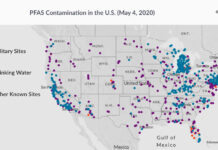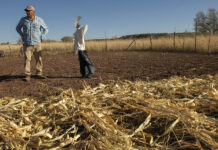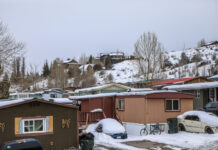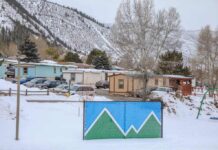Concern over the “forever chemical” PFAS in water supplies is high, but remedies remain...
A synthetic chemical’s appearance in public water supply wells raises questions of how to protect the public from unknown health hazards.
Praying for rain
The Zuni tribe's homeland is one of the most parched sections of the country. The tribe has already declared three drought emergencies in the last 15 years. Will it survive the next one?
Marble quarry operators violated Clean Water Act, Army Corps of Engineers finds
The U.S. Army Corps of Engineers has determined that the operators of a marble quarry violated the Clean Water Act when they diverted a tributary of the Crystal River to make way for a mining road.
Quarry in Marble facing scrutiny from federal, state regulators in wake of diesel spill
The operator of Marble’s famed Yule quarry, is facing scrutiny and possible penalties from federal and state regulators after an October diesel spill that shut down operations for nearly two months.
The coronavirus pandemic might make buildings sick, too
With millions of people under stay-at-home orders, water is sitting in the pipes of empty office buildings and gyms, getting old and potentially dangerous.
Colorado water utilities race to protect workers from COVID-19 as they declare tap water...
Water utilities initiated emergency action plans, asking hundreds of employees to work from home to limit the virus’ spread and to help protect the workers needed to operate water treatment and delivery systems.
Mobile-home residents stuck in a regulatory roundabout
It's unclear whether a new law could improve water quality in the Eagle River Village park, but legislators want to pressure owners to do more.
Owners of Eagle River Village mobile-home park defend water quality
Residents of a mobile home park in Edwards say their well water tastes, looks and smells bad.
Aspen’s rich history of befouling the Roaring Fork River
As Aspen evolved from a bucolic high-mountain meadow to an industrial city, pollution began to flow directly into the Roaring Fork River and its tributaries.
As the Salton Sea shrinks, it leaves behind a toxic reminder of the cost...
Scientists fear that eventually the toxic residue of more than a century of agricultural runoff will be blown into the air — and into the lungs of residents.












